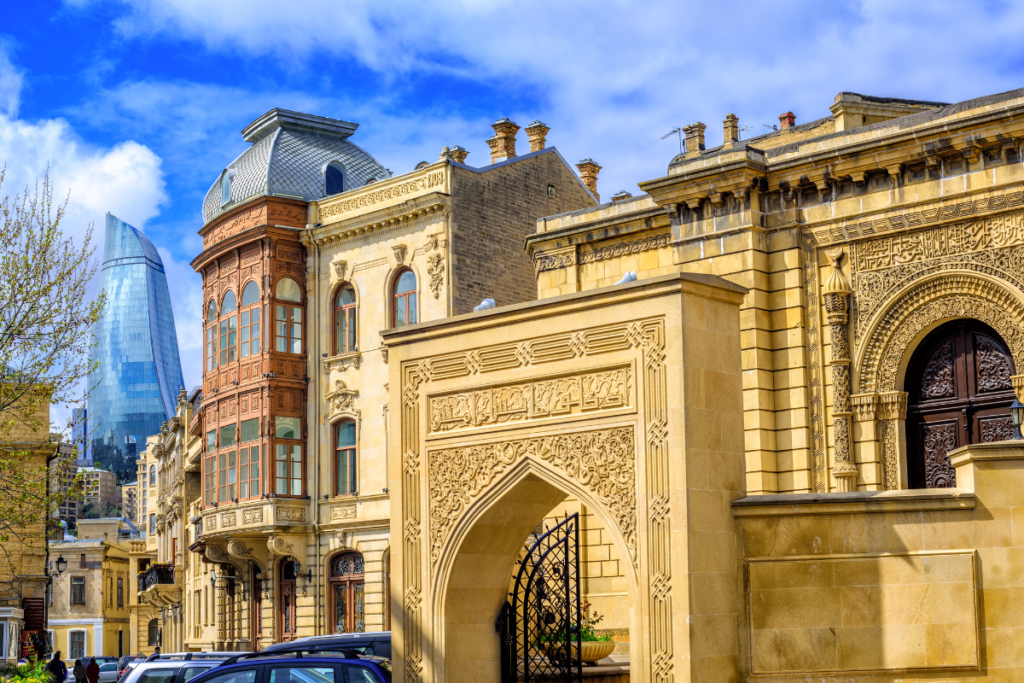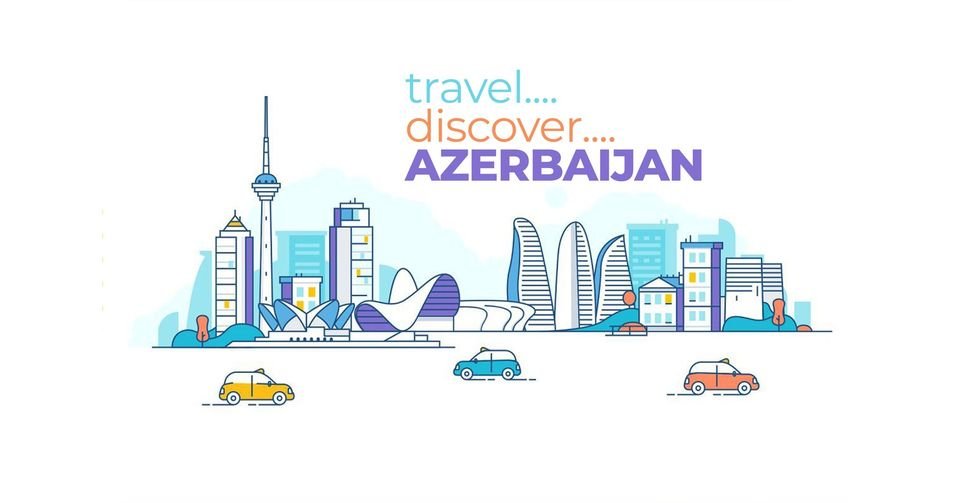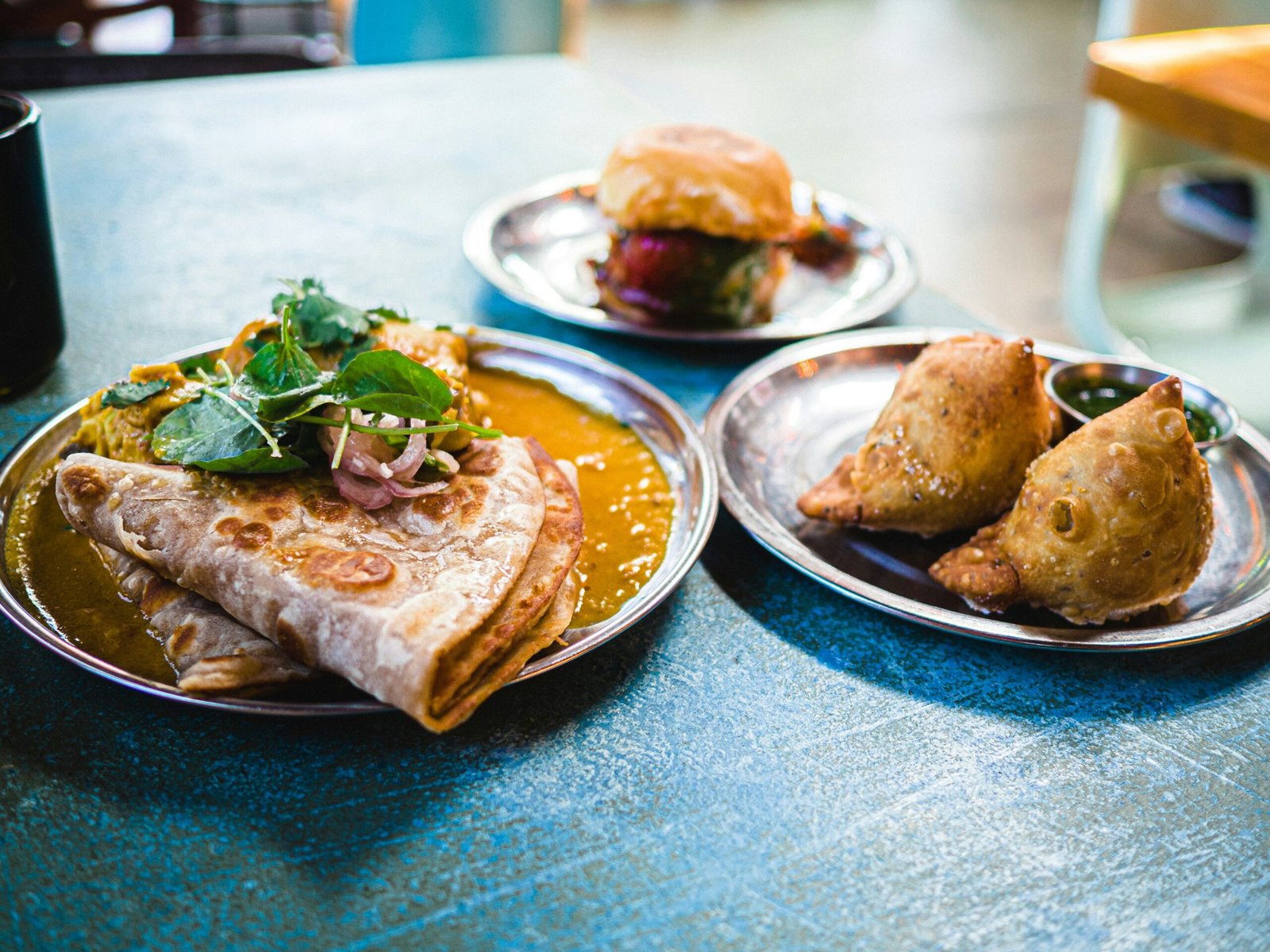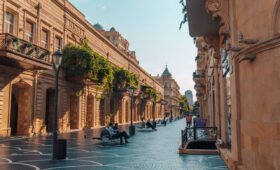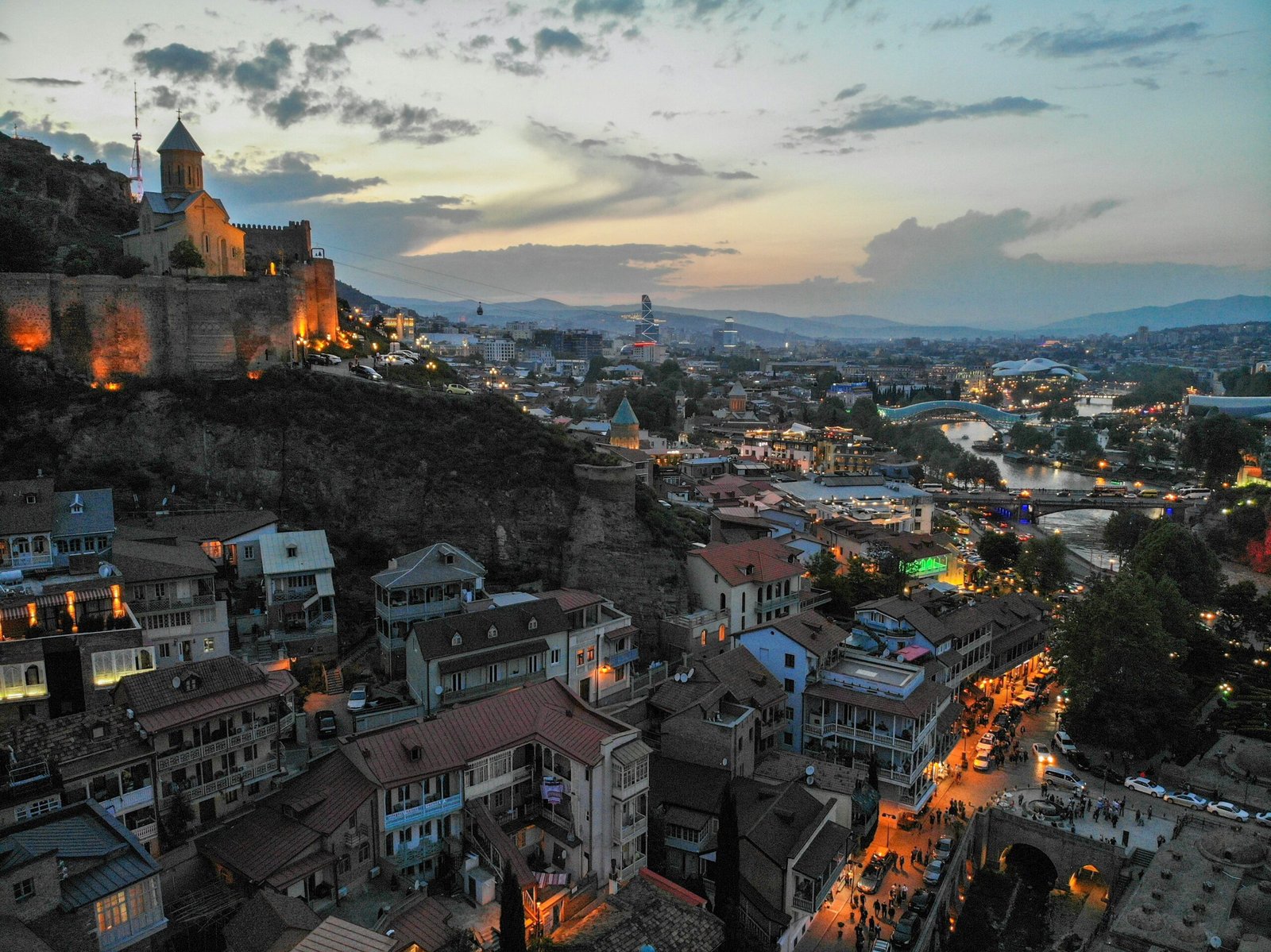The Local’s Guide to Exploring this Hidden Gem
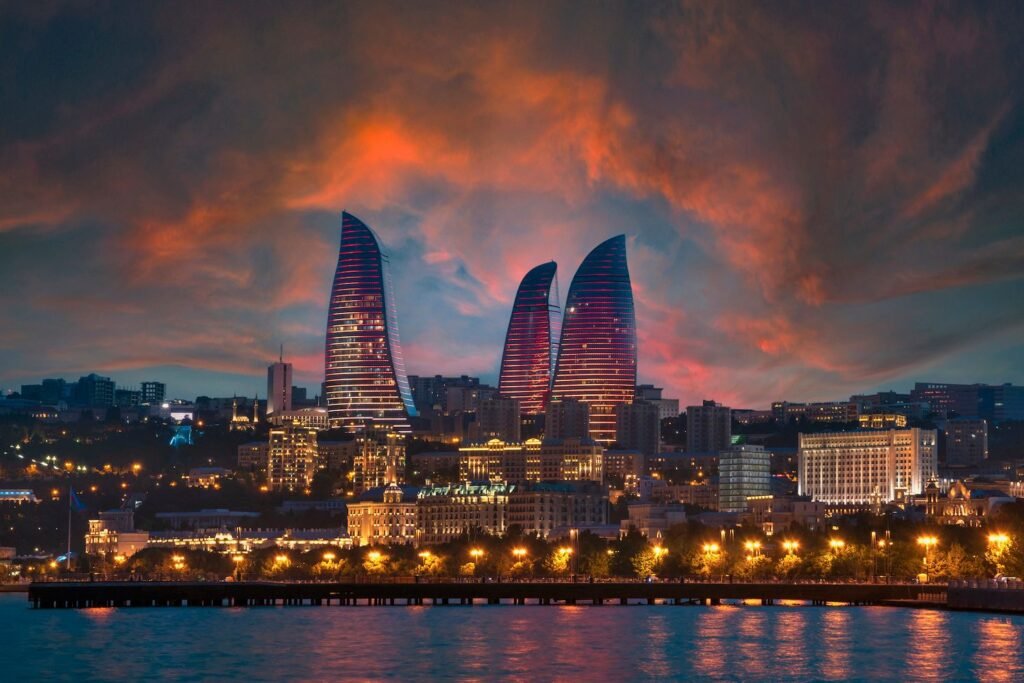
Azerbaijan is a nation located at the crossroads of Eastern Europe and Western Asia. It borders the Caspian Sea to the east, Russia to the north, Georgia to the northwest, Armenia to the west, and Iran to the south. Azerbaijan has a rich history and culture influenced by its strategic location along the historic Silk Road.
Brief History and Geography
Azerbaijan has been inhabited since prehistoric times. The country has seen waves of migration and invasion throughout its history from various regional powers. Azerbaijan was incorporated into the Russian Empire in the 19th century. The country declared independence in 1918 but was then incorporated into the Soviet Union in 1920 as the Azerbaijan Soviet Socialist Republic. Azerbaijan regained independence in 1991 after the dissolution of the Soviet Union.
The geography of Azerbaijan is diverse, containing mountainous regions, forests, steppes, and shoreline along the Caspian Sea. Notable geographic features include the Greater Caucasus mountains in the north and the Lesser Caucasus mountains in the west. The lowland Kura-Araks Depression lies between the two mountain ranges.
Capital City
The capital and largest city of Azerbaijan is Baku. Baku is located on the shores of the Caspian Sea and has been an important city throughout Azerbaijan’s history. Baku became a major center for the oil industry in the late 19th century and attracted foreign investment and workers. Today, Baku is a vibrant, cosmopolitan city that blends modern architecture with historic sites. It is a hub for business, culture, and tourism in Azerbaijan.
Notable Facts
- Official language: Azerbaijani
- Currency: Azerbaijani manat
- Population: 10 million (2020 estimate)
- Main religion: Islam
- Life expectancy: 73 years
- Literacy rate: 99.8%
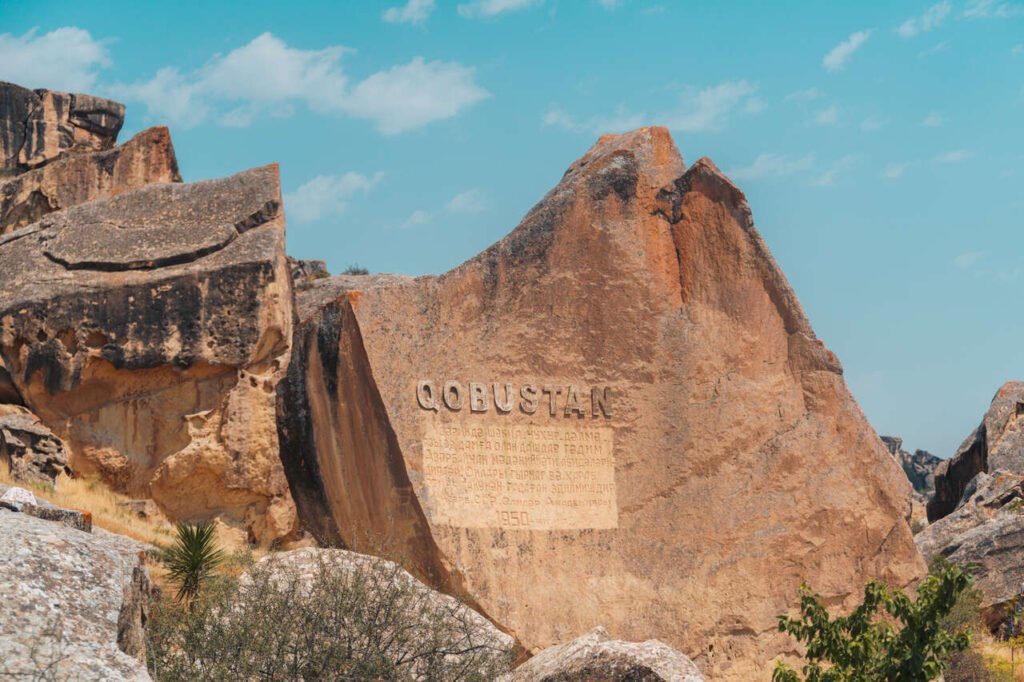
Culture and People
The majority of Azerbaijan’s population are ethnic Azerbaijanis. Other ethnic groups include Lezgins, Armenians, Russians, and Georgians. The main religion is Islam, with most Azerbaijanis being adherents of Shia Islam. About 93% of the population speaks the Azerbaijani language, which is a Turkic language and closely related to Turkish.
Azerbaijani culture has been influenced by its history along the Silk Road and its diverse ethnic makeup. Azerbaijani cuisine features dishes such as kebabs, rice dishes, and breads. Tea is a staple beverage. Azerbaijani folk art includes handicrafts, music, and dance. The mugham style of musical performance is a signature Azerbaijani art form.
Top Attractions in Azerbaijan
Azerbaijan has many incredible sights and attractions for visitors to explore. Some of the top attractions include:
Old City Baku
The walled Old City of Baku offers a glimpse into Azerbaijan’s ancient past. Walking through the narrow cobblestone streets transports you back centuries. Key sites include the Maiden Tower, a 12th century defensive tower, Palace of the Shirvanshahs, a 15th century palace complex, and ancient mosques and caravanserais. Wandering through the Old City reveals historic architecture, artisan workshops, traditional teahouses, and small museums.
Gobustan National Park
Located just 40 miles from Baku, Gobustan National Park contains over 6,000 rock carvings dating back as far as 20,000 years ago. The UNESCO World Heritage site features ancient petroglyphs depicting prehistoric life in the region. Visitors can also see mud volcanoes and gas stones that still emit flames.
Shirvanshah’s Palace
Constructed in the 15th century, Shirvanshah’s Palace served as the royal residence of the Shirvanshah dynasty. The palace complex contains a mosque, mausoleum, bathhouse, and the two-story palace itself with stunning facades. Intricate Islamic architectural designs make this one of Azerbaijan’s most beautiful historic sites.
Maiden Tower
As Baku’s most famous landmark, the Maiden Tower’s architectural details and history fascinate visitors. The 12th century tower likely served as a fire beacon and defensive fortification. Climb to the top for panoramic city views. The tower combines Zoroastrian, Sasanian, Arabic, and Ottoman elements, exemplifying Azerbaijan’s diverse past.
Heydar Aliyev Center
The contemporary Heydar Aliyev Center designed by famed architect Zaha Hadid features fluid curved lines and an all-white exterior. As a major cultural center, the complex houses exhibition spaces, auditoriums, and museums. The center’s avant-garde style provides a contrast to Baku’s historic sites.
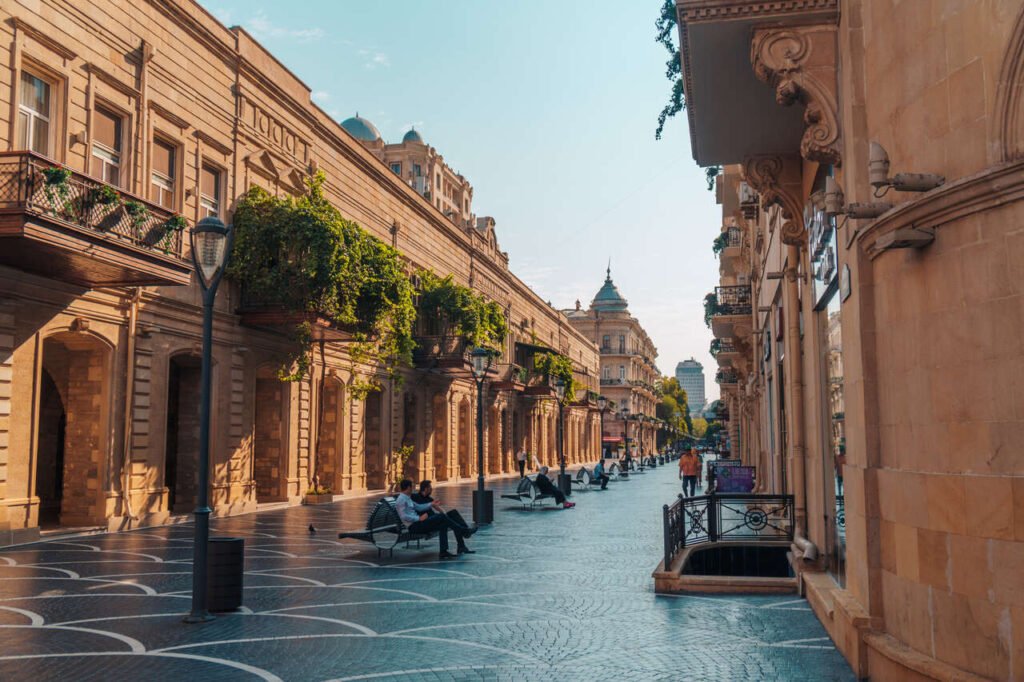
Cuisine of Azerbaijan
Azerbaijan has a rich and flavorful cuisine that reflects the country’s history and cultural influences. Some of the most iconic Azerbaijani dishes include:
Plov
Plov is considered the national dish of Azerbaijan. It consists of rice, meat, carrots, onions, dried fruits, and spices cooked together in a single pot. There are many regional variations, but the rice is always fluffy and flavorful from absorbing the juices of the meat and vegetables. Lamb, beef, or chicken can be used. Plov is a staple at celebrations, holidays, and family gatherings.
Dolma
Dolma refers to dishes where vegetables, leaves, or meat are stuffed with a rice filling. Some popular types are grape leaf dolma, stuffed eggplant, cabbage dolma, and meat dolmas. The rice filling usually contains lamb, onion, herbs, and spices. Dolmas make for flavorful, portable appetizers and snacks.
Kebabs
There are many varieties of kebabs in Azerbaijan, reflecting influences from Turkey and the Middle East. Some notable ones are lule kebab (minced lamb kebabs on a skewer), tika kebab (lamb chunks on a skewer), and kyufta kebab (meatballs). Kebabs are often served with traditional flatbreads like lavash and tendir.
Sweets and Desserts
Baklava, pakhlava, and shekerbura are flaky pastries filled with nuts and soaked in sweet syrup. Other beloved desserts include shakarbura (fried dough with sugar), sherbet (fruit sherbet), and shekerpare (pieces of dough drenched in grape syrup). Saffron, rose water, and cardamom are often used to flavor sweets.
Azerbaijani cuisine balances savory and sweet flavors beautifully. Meals traditionally center around meat, rice, vegetables, herbs, and dairy. The cuisine reflects the country’s unique history as a crossroads between Europe and Asia.
Outdoor Activities
Azerbaijan offers a wide range of outdoor activities for adventure seekers. From hiking and climbing to camping and swimming, there are plenty of ways to experience the natural beauty of this country.
Hiking
Some of the best hiking trails in Azerbaijan can be found in the Caucasus Mountains, including the southern slopes of Mount Bazarduzu. There are trails for all levels, from easy day hikes to multi-day treks. The scenery here is stunning, with alpine meadows, waterfalls, and jagged peaks. Popular hikes include the trail to Lake Maral-Gol and the climb up Mount Shahdag.
Climbing
Avid climbers flock to Gobustan National Park, home to over 6,000 rock carvings dating back 6,000 years. The park features unique mud volcanoes and spectacular boulders and rock formations perfect for climbing. The best seasons for climbing are spring and fall.
Camping
With so many mountains, forests, lakes, and rivers, Azerbaijan offers many excellent camping spots. Some popular places to pitch a tent include the high alpine meadows of the Caucasus, the beaches around Lake Boyukshor, and the forests of Goygol National Park. Travelers should get camping permits from Azerbaijan’s Ministry of Ecology and Natural Resources.
Swimming
Swimming and beach activities are popular along the Caspian Sea coastline near Baku, the capital. Beach resorts like Novkhany, Mardakan, Bilgah, and Nabran have waterparks, sunbathing spots, and watersports. Travelers can also swim at mountain lakes like Maral-Gol, which has cold, crystal clear waters fed by snowmelt.
Skiing
Azerbaijan has several excellent options for downhill and cross-country skiing. The top ski resort is Shahdag Mountain Resort in the Greater Caucasus range. With high-speed quad lifts and over 25 miles of groomed slopes, it offers terrain for all abilities. Tufandag Ski Complex and Tufangol Ski Resort are other good choices for skiing and snowboarding. The peak season is from December to April.
Shopping in Azerbaijan
Azerbaijan is a shopper’s paradise, especially for those looking for unique local handicrafts and antiques. The country is known for its intricate carpets, beautiful silk scarves, and ornate jewelry.
Carpets
Carpets are one of the most iconic purchases to make in Azerbaijan. Almost every region has its own unique carpet-making tradition, using distinct patterns and dyes. In Baku, you’ll find rows of carpet shops in the Old City selling handmade wool and silk carpets. The Shirvan and Quba regions are especially prized for their carpets. Be sure to bargain, as carpet prices are almost always negotiable.
Silk Scarves
Silk scarves make a lovely souvenir or gift from Azerbaijan. Look for delicate scarves with traditional embroidery and patterns. The Sheki region is famous for silk production and you can buy beautiful silk items in the Sheki bazaar. Scarves come in shimmering colors and designs featuring flowers, pomegranates, and other Azerbaijani symbols.
Jewelry
Gold and silver jewelry is sold in most bazaars, but for the best selection head to the antique jewelry shops in Baku’s Old City. Look for bracelets, necklaces, and earrings decorated with semi-precious stones, pearls, and Azerbaijani motifs. You can find both modern and antique jewelry, including 19th century pieces with engraving and filigree work.
Antiques
As an ancient land on the Silk Road, Azerbaijan has many antiques left over from its history. In Baku, browse the antique shops near the Maiden Tower to find old carpets, samovars, musical instruments, Soviet era items, and more. You may be able to negotiate good deals for unusual antiques to take home. Just be sure to check customs regulations before purchasing very old items.
Local Bazaars
For the best prices and selection of local handicrafts, visit one of Azerbaijan’s many bazaars. In Baku, the Taza Bazaar sells carpets, jewelry, clothing, crafts, and more. Outside the capital, each town has its own bazaar. For example, the Sheki bazaar is the place to buy locally made silk. Wandering the bazaars is a great way to experience local shopping culture. Be prepared to haggle for deals.
Nightlife in Azerbaijan
Azerbaijan has a lively nightlife scene, especially in the capital Baku. Here are some of the top nightlife options to experience:
Clubbing
Baku has a vibrant clubbing scene, with DJs and live music at venues like 360 Bar, Otto Club, and ANN Nightclub. These multi-level clubs attract a mix of locals and visitors with pulsing dance floors, full bars, and a trendy vibe. Otto Club is known for its rooftop terrace with views of the Caspian Sea.
Live Music
Jazz lovers can head to Club 33 for intimate jazz concerts in a sophisticated setting. The Philharmonic Hall and Azerbaijan State Academic Opera and Ballet Theater both host classical music performances. For traditional Azeri music, check out concert listings at the Mugham Club.
Theater
Theater is popular in Baku, with dramatic performances at Azerbaijan State Academic National Drama Theater and comedies and musicals at Azerbaijan State Theatre of Young Spectators. Many plays are in Azeri, but some shows have English subtitles.
Bars and Pubs
For a more laidback evening, visit cozy wine bars like Şərab Evi or beer pubs like The Pub. British-style pubs like The Old Nags Head and Finnegans show live sports and have pub quizzes. Baku also has stylish cocktail lounges like Eni Bar where you can enjoy creative drinks.
With this wide range of nightlife options, Baku is a city that truly comes alive after dark. Local night owls and visitors alike will find plenty of ways to experience the city’s vibrant night time energy and culture.
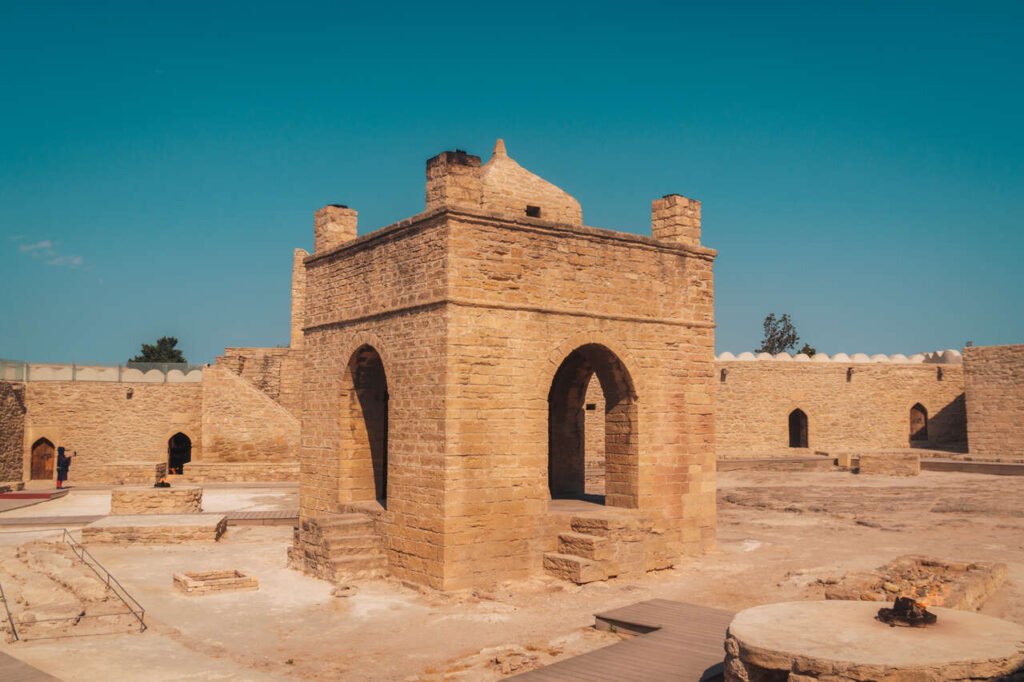
Regions to Explore
Azerbaijan offers much regional diversity for travelers to explore. Here are some of the top regions to consider:
Nakhchivan
The Nakhchivan Autonomous Republic is an exclave of Azerbaijan separated from the main country by Armenia. This area features stunning ancient architecture, including the Momina Khatun Mausoleum and the Nakhchivangala Fortress. The natural landscapes are also impressive, such as the Batabat Lake and the Daralayaz Mountains.
Lankaran
The Lankaran region in southern Azerbaijan sits along the Caspian Sea. It’s known for its humid subtropical climate, forests, and agricultural land growing tea and citrus. Visit in spring to see the vibrant vegetation and explore Lankaran’s Persian-influenced old city. The coastal Lankaran National Park is also worth a trip.
Sheki
Sheki is a city in northern Azerbaijan set on the slopes of the Greater Caucasus Mountains. It’s famous for the intricate frescoes and stained glass in the 18th century Khan’s Palace. Sheki also has an historic old town, craft workshops, and the reconstructed 19th century Upper and Lower Caravanserais.
Khinaliq
High up in the Caucasus Mountains sits the isolated village of Khinaliq. It’s inhabited by an ancient people speaking their own language. The stone houses and sheep herding traditions here feel lost in time. Khinaliq makes for an adventurous and cultural visit amidst stunning alpine scenery.
Accommodation Tips
Azerbaijan offers a wide variety of accommodation options to suit different budgets and preferences. Here are some tips for finding the right place to stay during your visit:
Types of Lodging
- Hotels – Azerbaijan has hotels ranging from luxurious five-star properties to more affordable chain hotels. The main cities like Baku and Ganja have the largest selection.
- Boutique Hotels – For a more intimate and stylish stay, consider the boutique hotels popping up in Baku, some with rooftop bars or scenic views. These provide modern amenities with local flair.
- Hostels – Hostels are a budget-friendly option, especially for solo travelers. Baku and other tourist areas have hostels with dorms as well as private rooms.
- Apartments – Renting an apartment through Airbnb or a local agency can be ideal for long stays. You can select an apartment in a residential neighborhood to experience life like a local.
- Guesthouses – In rural areas, locals rent out rooms in their homes. This offers an authentic local experience and a chance to learn about Azerbaijani hospitality.
Best Areas to Stay
- City Center – For sightseeing in Baku, the city center puts you close to top attractions like the Old City, seafront promenade, and modern landmarks. However, accommodations here are more expensive.
- Suburbs – Neighborhoods just outside the city center like Nizami and Sabayil offer more affordable lodging with easy access via the metro. Staying in the suburbs provides a more local vibe.
- Small Towns – Consider staying in charming smaller towns like Sheki or Quba to experience local culture. You can take day trips to nearby sights.
Affordable Options
- Opt for a hostel dorm bed to save money, especially if traveling solo. Private hostel rooms are also cheaper than hotels.
- Look for hotels and apartments outside of the main tourist zones, where lower demand equals better rates.
- Avoid peak season and holidays when hotel prices spike. Visit during shoulder seasons for deals.
- Book a rental apartment with a kitchen to save on dining out every meal. Grocery stores offer inexpensive local produce.
- Join tours and excursions through your hostel or guesthouse, which are typically cheaper than private tours.
Getting Around Azerbaijan
Public Transportation
The most common way to get around cities in Azerbaijan is by bus, trolleybus, or metro. Fares are quite cheap, usually less than 1 AZN per ride. The metro systems in Baku and Ganja are excellent ways to avoid traffic above ground.
Baku has three metro lines that are clean, efficient, and very affordable. The stations feature artistic designs. Ganja’s metro only has one line but also provides a convenient way to traverse the city.
Buses and trolleybuses can get crowded, so be prepared to squeeze in during busy times. Have exact change ready as drivers may not have change for large bills. Routes and schedules are posted at stations.
Taxis
Taxis are readily available, especially in Baku. Ensure the meter is running to avoid being overcharged. It’s advised to have smaller bills on hand for the payment as drivers may not have change.
Uber and Bolt also operate in Baku and are safe, affordable options. Pre-booked airport transfers from reputable companies are recommended.
When hailing a taxi on the street, look for official taxi signs on the roof. Avoid unmarked cars. It’s also wise to have your destination written in Azerbaijani to show the driver.
Driving
Many travelers opt to rent a car for flexibility exploring regions outside Baku. Roads are generally good quality. Traffic in Baku can be challenging but improves outside the capital.
Drivers should have their International Driving Permit and vehicle registration papers. Get insurance when renting. Avoid driving at night when possible due to potholes and livestock on roads.
Travel Tips
When visiting Azerbaijan, there are some key travel tips to keep in mind to ensure you have a smooth and enjoyable trip.
Best Time to Visit
The best time to visit Azerbaijan is typically during the spring (April-May) and autumn (September-October). During these months, the weather is mild and ideal for sightseeing and outdoor activities. Summers can get very hot, especially in central Azerbaijan and the lowlands. Winters are cold with some rain/snow.
Visa Requirements
Most foreign nationals require a visa to enter Azerbaijan. Visas can be obtained online through Azerbaijan’s new ASAN Visa system prior to arrival. Make sure to apply for your visa well in advance.
Language Barrier
The main language in Azerbaijan is Azeri. Russian is also commonly spoken, especially among older generations. English is not widely spoken outside of Baku and major tourist sites. Learning a few basic Azeri phrases can help overcome language barriers when interacting with locals. Carrying a physical phrasebook is recommended.
Safety
Azerbaijan is generally safe for tourists and violent crime levels are low. However, you should exercise normal precautions as petty theft does occur in crowded areas. Avoid carrying large amounts of cash and keep valuables secured. When using taxis, go for official branded ones and negotiate the fare upfront. As a largely Islamic country, dress modestly and avoid public displays of affection outside of major hotels.
